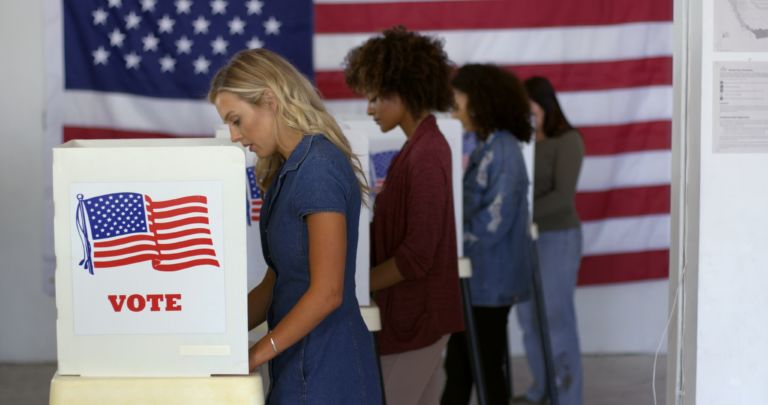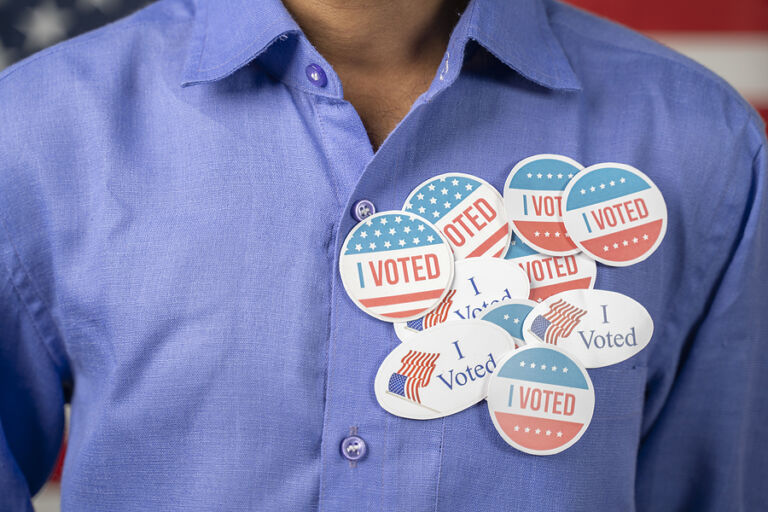Mark Meadows was one of the most powerful figures in Washington after he resigned from Congress to become President Donald Trump’s chief of staff. However, a report in the New Yorker alleges that Meadows committed voter registration fraud during the 2020 election:
On September 19th, about three weeks before North Carolina’s voter-registration deadline for the general election, Meadows filed his paperwork. On a line that asked for his residential address—“where you physically live,” the form instructs—Meadows wrote down the address of a fourteen-by-sixty-two-foot mobile home in Scaly Mountain. He listed his move-in date for this address as the following day, September 20th.
Meadows does not own this property and never has. It is not clear that he has ever spent a single night there. (He did not respond to a request for comment.)
To be clear, you do not have to own a property for it to be your voting residence. Also, most members of Congress and many executive branch officials spend more of their time in their residence in the Washington D.C. area while they are serving, with the assumption that they will return to their primary residence in North Carolina once they have completed their service in Congress.
Those factors are not at the heart of the allegation against Meadows, however. The allegation is that he registered to vote at a place he never maintained as a residence and then voted absentee by mail with that registration, committing both voter registration and election fraud.
As seen in his voter history record, he transferred his registration address from Transylvania County to Macon County in 2020 and voted absentee by mail using the Macon County address (figure 1). That is the Scaly Mountain address at which he allegedly never stayed.
Figure 1: Mark Meadow’s voter history record shows that he moved his residence from Transylvania County to Macon County in 2020.

Source: North Carolina State Board of Elections
If it is confirmed that Meadows committed voter registration fraud, it reveals a weakness in how North Carolina verifies residency for voter registration:
[Macon County’s Board of Elections Director Melanie D. Thibault] said that [the Meadows’] registrations had arrived by mail and were entered into the system, and that a voter-registration card was sent to a P.O. Box they’d provided as their mailing address. “If that card makes it to the voter and it’s not sent back undeliverable, then the voter goes onto the system as a good voter,” she said.
It also highlights the difficulting of challenging allegedly fraudulent voter registrations:
“The state board tells [county elections boards] we’re not the police,” she went on. “It’s up to the voter to give us the information.” A candidate or voter can challenge another voter’s address, she explained, but the burden of proof, at least at the outset, rests with the challenger. In this case, then, Meadows wouldn’t need, initially, to prove that he had listed a true place of residence—the challenger would need to prove that Meadows hadn’t. These challenges can be tough to win and are not frequently brought.
If Mark Meadows committed voter registration and voting fraud, he should face the same penalties that anyone else who commits such fraud would face.
UPDATE: Under North Carolina law, it appears that Meadows could have maintained his address in Transylvania County as his legal voting address while he served in Washington (GS 163-57(8)):
If a person removes to the District of Columbia or other federal territory to engage in the government service, that person shall not be considered to have lost residence in this State during the period of such service unless that person votes in the place to which the person removed, and the place at which that person resided at the time of that person’s removal shall be considered and held to be the place of residence.
Cover photo of Mark Meadows by Gage Skidmore


